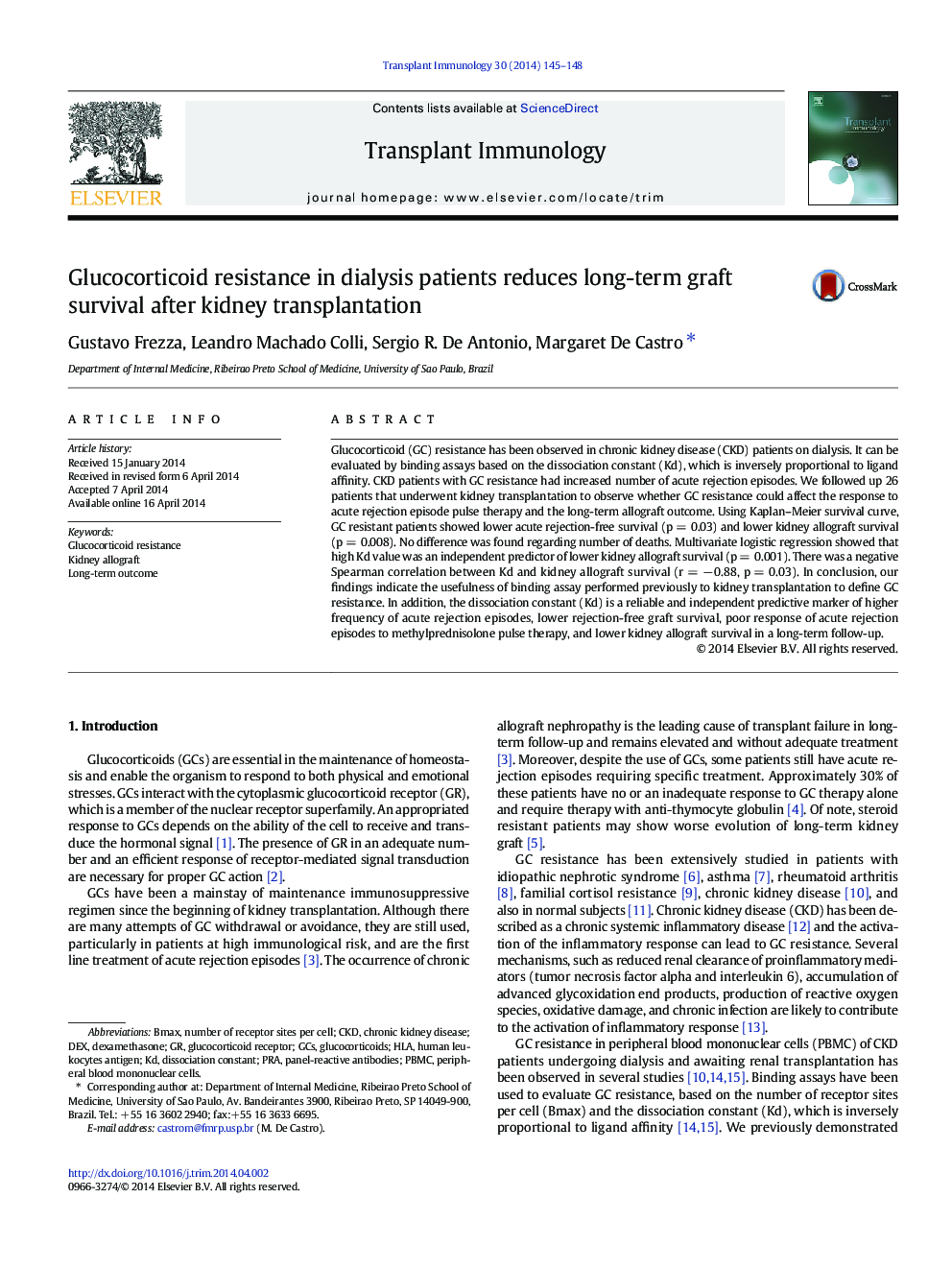| Article ID | Journal | Published Year | Pages | File Type |
|---|---|---|---|---|
| 3392073 | Transplant Immunology | 2014 | 4 Pages |
•Glucocorticoid resistant patients had lower long-term acute rejection-free survival.•High Kd value is an independent predictor of low long-term kidney graft survival.•Higher kd is a marker of poor response to kidney graft acute rejection treatment.
Glucocorticoid (GC) resistance has been observed in chronic kidney disease (CKD) patients on dialysis. It can be evaluated by binding assays based on the dissociation constant (Kd), which is inversely proportional to ligand affinity. CKD patients with GC resistance had increased number of acute rejection episodes. We followed up 26 patients that underwent kidney transplantation to observe whether GC resistance could affect the response to acute rejection episode pulse therapy and the long-term allograft outcome. Using Kaplan–Meier survival curve, GC resistant patients showed lower acute rejection-free survival (p = 0.03) and lower kidney allograft survival (p = 0.008). No difference was found regarding number of deaths. Multivariate logistic regression showed that high Kd value was an independent predictor of lower kidney allograft survival (p = 0.001). There was a negative Spearman correlation between Kd and kidney allograft survival (r = − 0.88, p = 0.03). In conclusion, our findings indicate the usefulness of binding assay performed previously to kidney transplantation to define GC resistance. In addition, the dissociation constant (Kd) is a reliable and independent predictive marker of higher frequency of acute rejection episodes, lower rejection-free graft survival, poor response of acute rejection episodes to methylprednisolone pulse therapy, and lower kidney allograft survival in a long-term follow-up.
